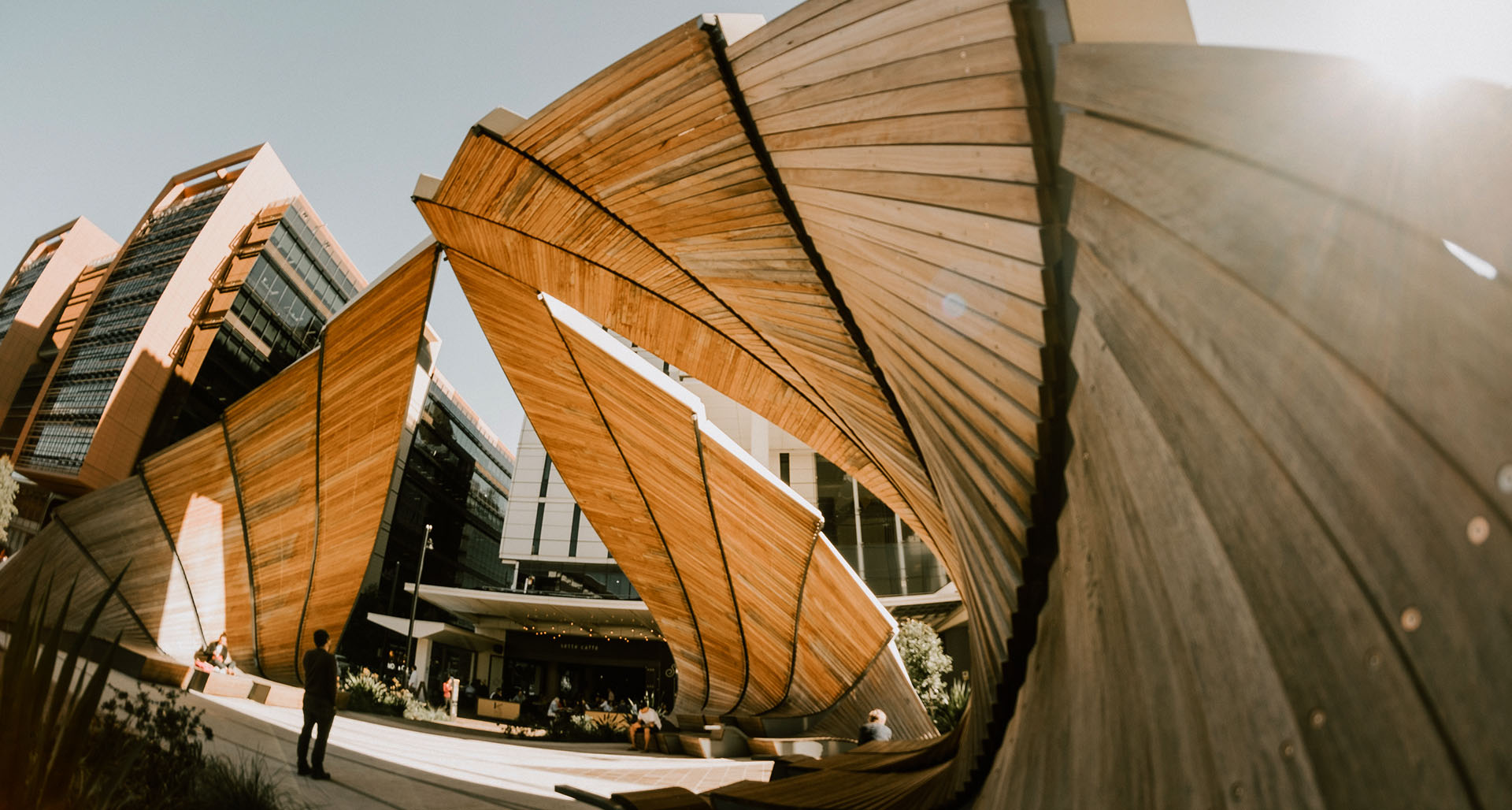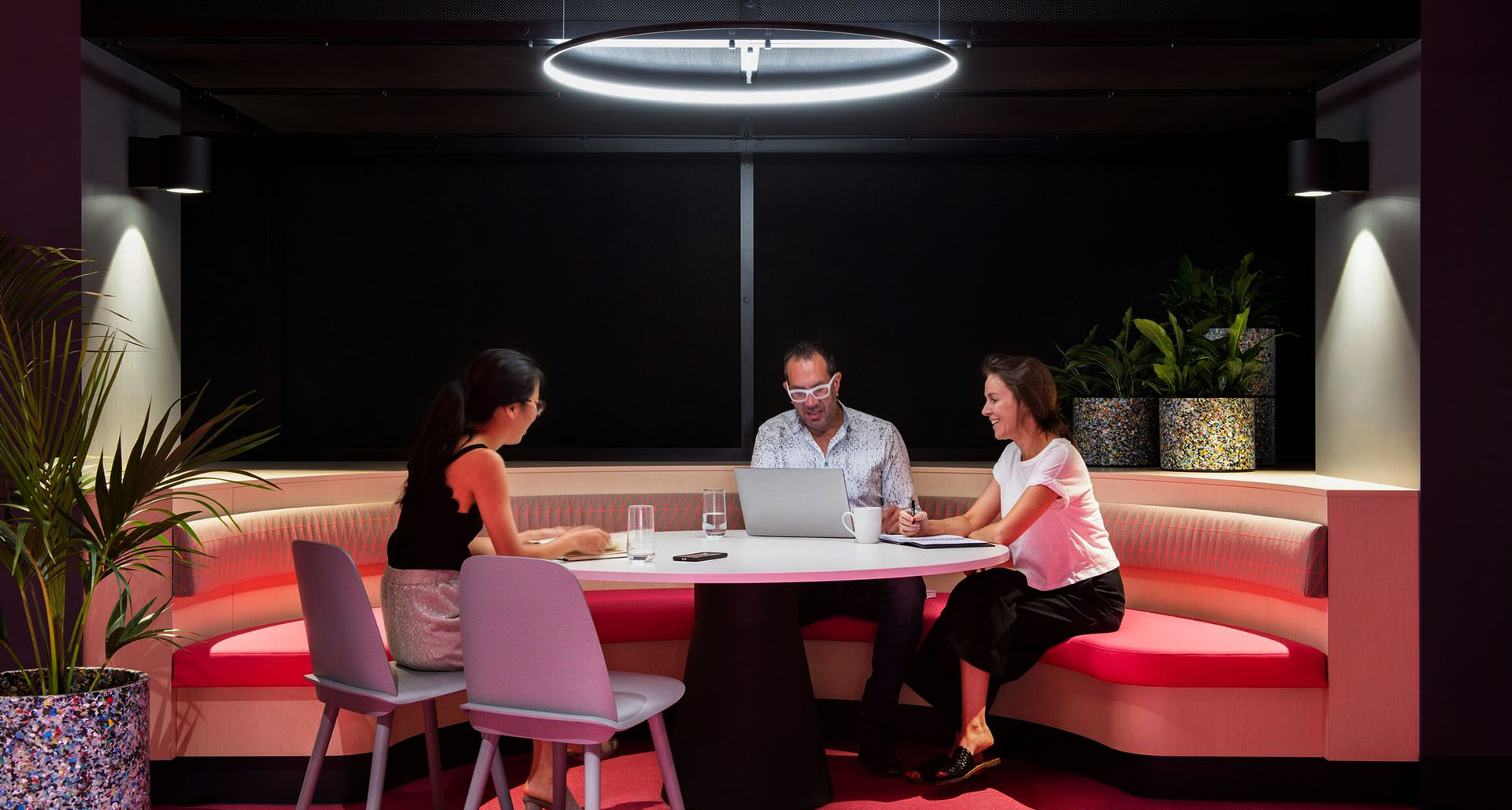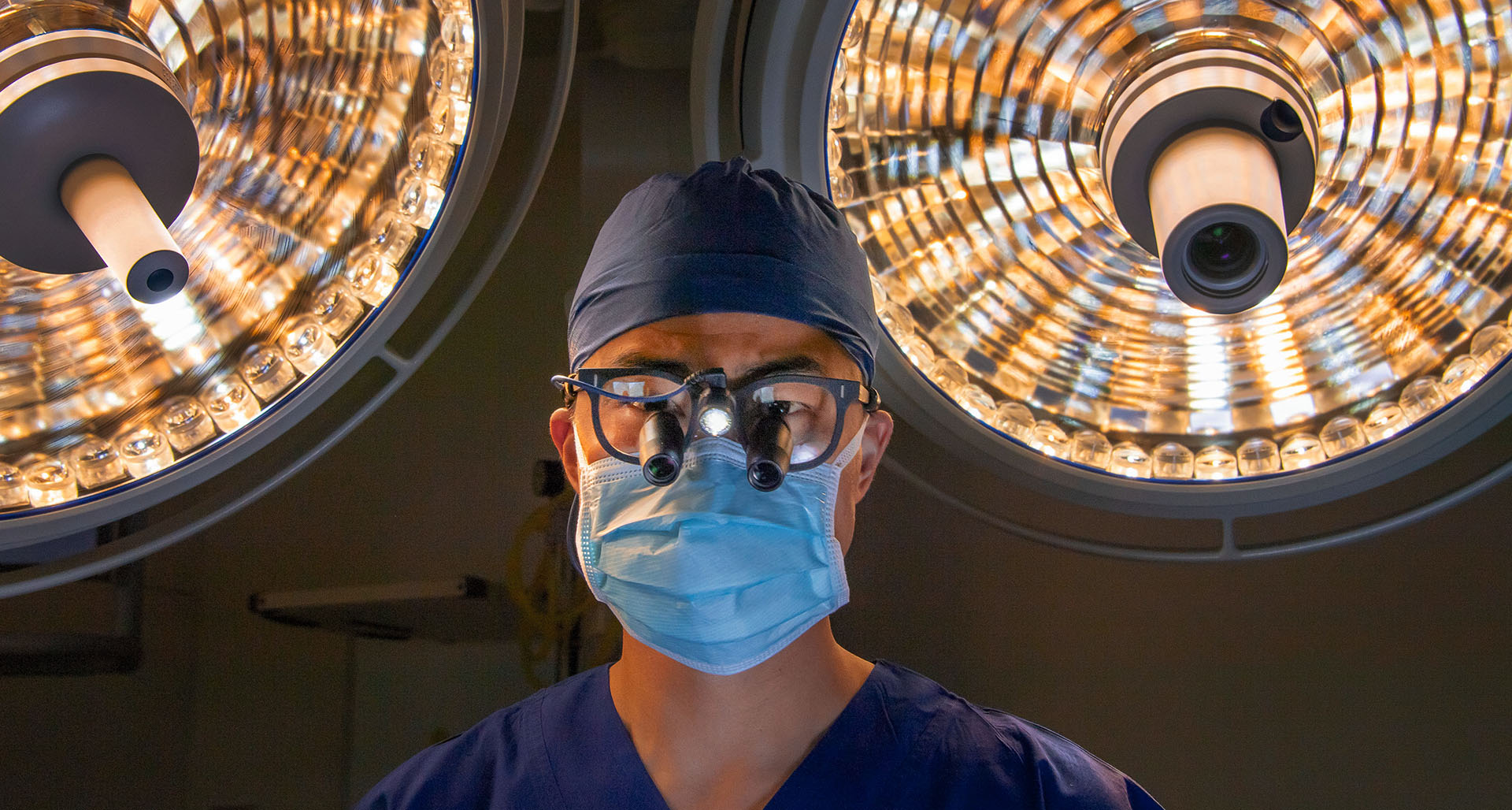UTS and Young Henrys join forces to offset carbon emissions with algae
Brewing just one six-pack of beer leaves behind a CO2 hangover that takes a tree two days to absorb. But scientists and popular independent beer brand Young Henrys are working together to demonstrate the potential for one of the world’s oldest organisms – algae – to help businesses offset carbon dioxide.
Alongside the stainless-steel brewing tanks at Young Henrys in the inner-west Sydney suburb of Newtown is another kind of vat – a green-glowing, 400-litre algal bio-reactor. Inside, 20 trillion cells of microalgae are at work absorbing CO2 and producing the same amount of oxygen as a hectare of bushland.
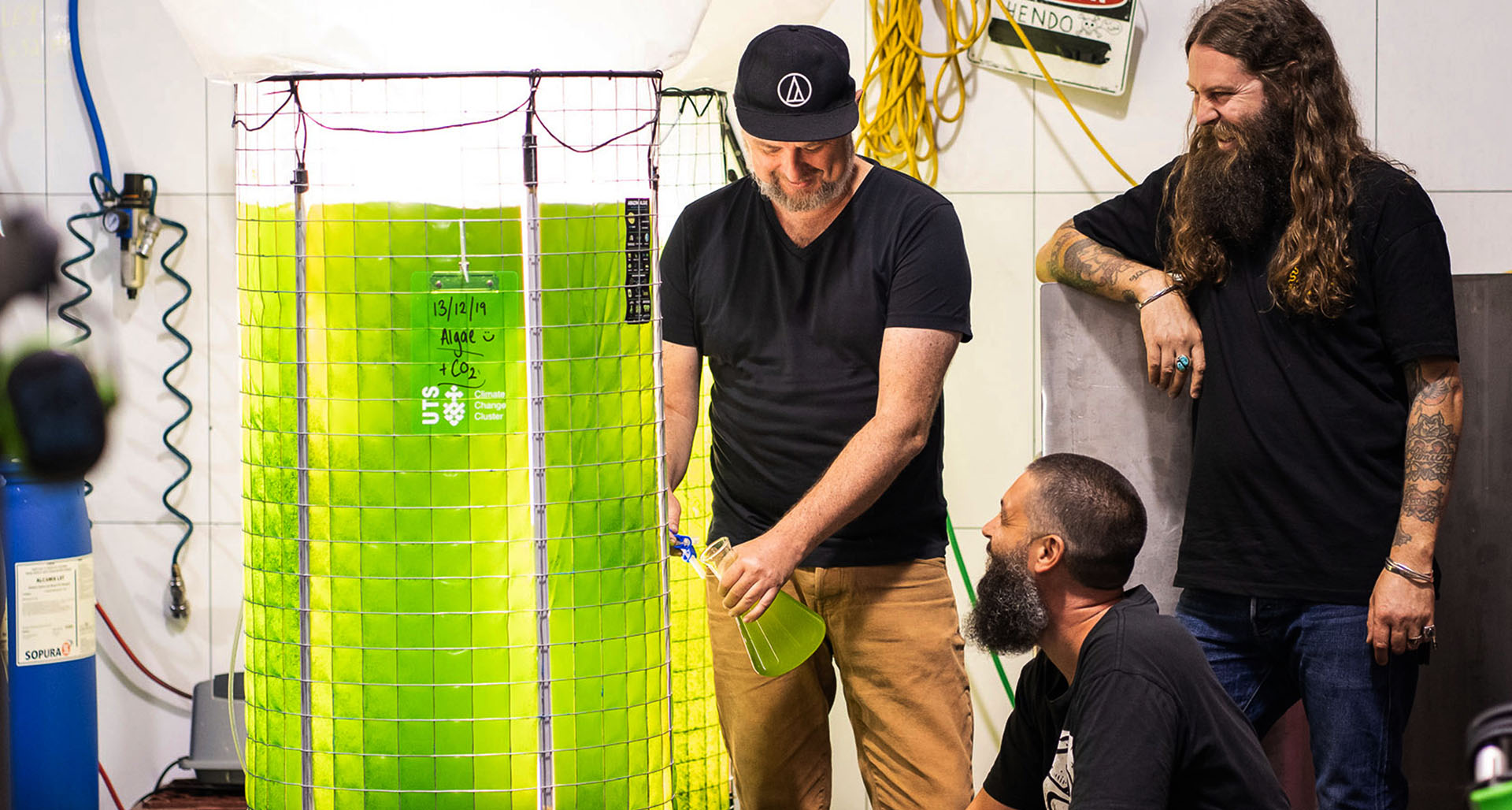
It’s a neat match: while the yeast in the brewing process takes in oxygen and sugar and produces CO2, the microalgae in the reactor takes in CO2 and produces oxygen and a sugar substrate.
“It’s like we’re installing a mini-forest on the brewery floor,” says Dr Leen Labeeuw, a biotechnologist with the Climate Change Cluster (C3) at the University of Technology Sydney (UTS).
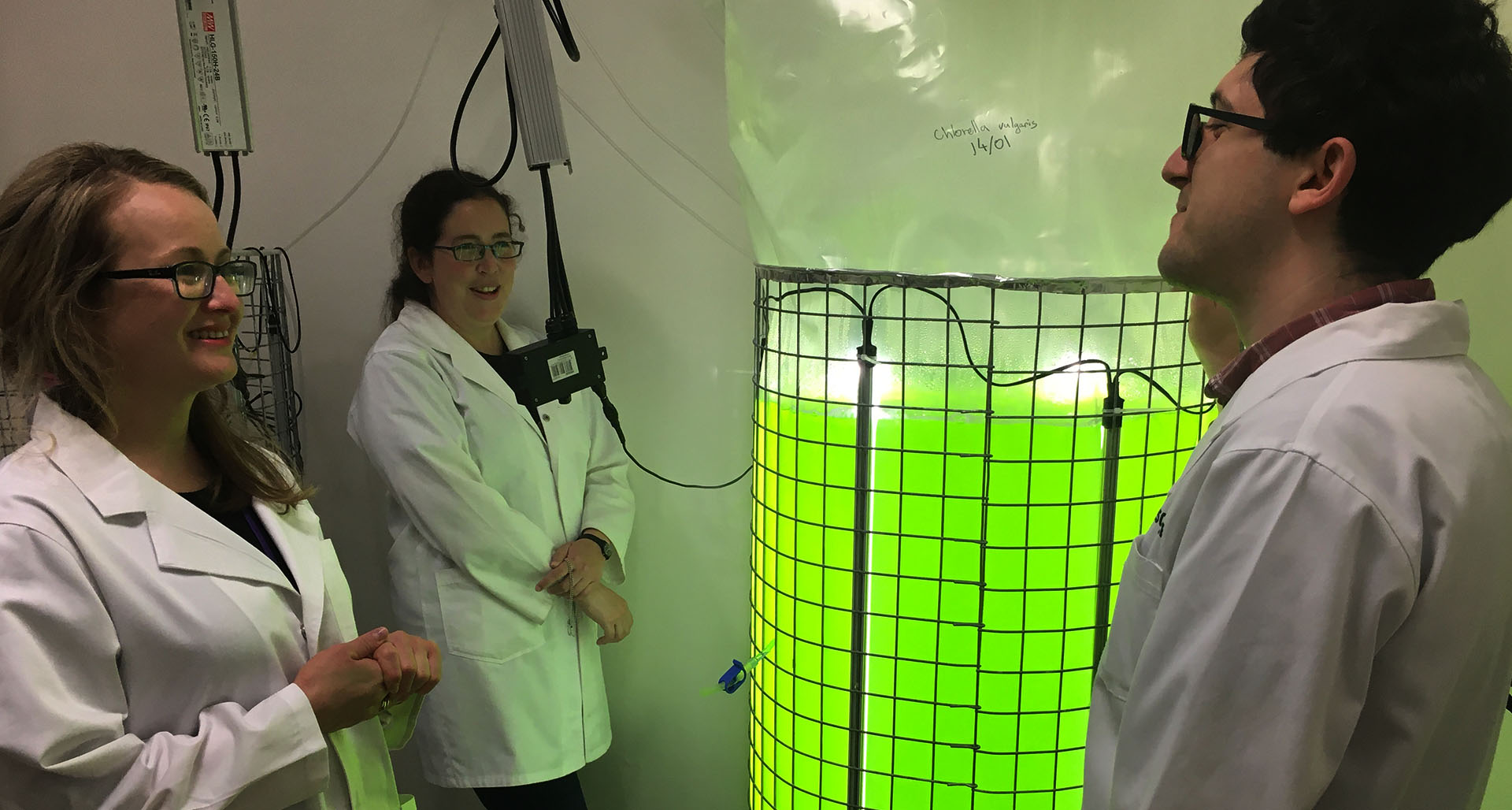
Young Henrys co-founders Oscar McMahon and Richard Adamson say they hope the research project, funded through Australia’s Department of Industry, Innovation and Science, will lead to brewing becoming a carbon-neutral industry, with the technology also adapted to other businesses here and around the world.
“We were inspired by the work the C3 group were doing and wanted to get involved,” Richard said. “We thought it would be worth exploring how microalgae could work in a brewing operation to lower our carbon footprint.”
“We’d like to get to the point where we have a CO2 catchment system internally and it would basically be a closed loop within the brewery,” Oscar adds. “We’ve still got a fair way to go but once we’ve got it bolted down we definitely would like other breweries to run with it.”
C3 Executive Director Professor Peter Ralph says the work with Young Henrys shows we can address the climate emergency using technology that’s readily available. “Algae offers many solutions,” he said.
C3 is working on a range of uses for algae as a new, sustainable raw material for what are now petroleum-based products. This would have tremendous benefits for people, planet and potentially profit.
Bioproducts researcher Dr Janice McCauley explains that algae have three main chemical building blocks: protein, carbohydrates (sugars), and lipids (oils). “With microalgae in particular we can manipulate the regulatory pathways so we can accumulate one or another of these building blocks – so we can use algae to create fuel, food and other products.”
"Among many other things, algae can produce oil for energy and other products like oil/protein/starch-based bioplastics, along with sugars and other biochemicals for skincare. The protein can also be used for meat alternatives and the oil for an algal-based Omega-3. Microalgae are also an excellent platform for high-value medical compounds and pharmaceuticals," Janice said.
The challenge – and the opportunity – is achieving the sort of scale and efficiencies needed for viable products and industries. So, alongside the research, the industry-focused NSW Deep Green Biotech Hub based at UTS is working with entrepreneurs and existing businesses to help them launch or work with algae biotechnologies.
"Carbon capture via microalgae is something almost any business could adopt," said Deep Green Biotech Hub’s Manager, Dr Alex Thomson, and widespread carbon capture and re-utilisation would have a major, positive impact on the climate emergency.
Professor Ralph says there are “massive” market opportunities. “I really believe the potential for algae’s use in a sustainable future is limitless,” he said. “Algae can play a pivotal role in Australia’s clean energy future as we move away from petroleum-based products. The high-value opportunities in medicine, food and nutraceuticals are exciting and tantalisingly close.”
If you’d like to contact the UTS Climate Change Cluster, find out more about the many solutions algae can offer or get in touch with the Deep Green Biotech Hub, please reach out to Lucy Buxton, Industry Engagement Manager, Lucy.Buxton@uts.edu.au
